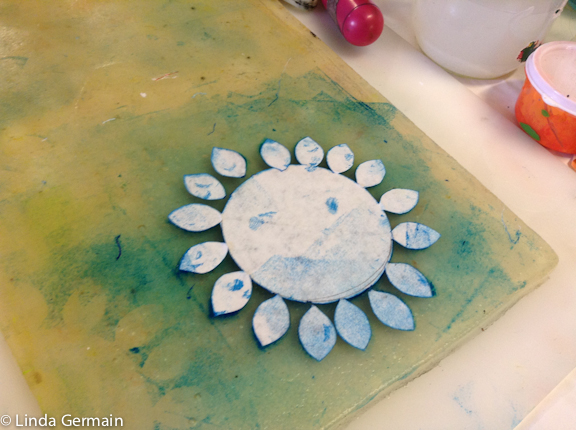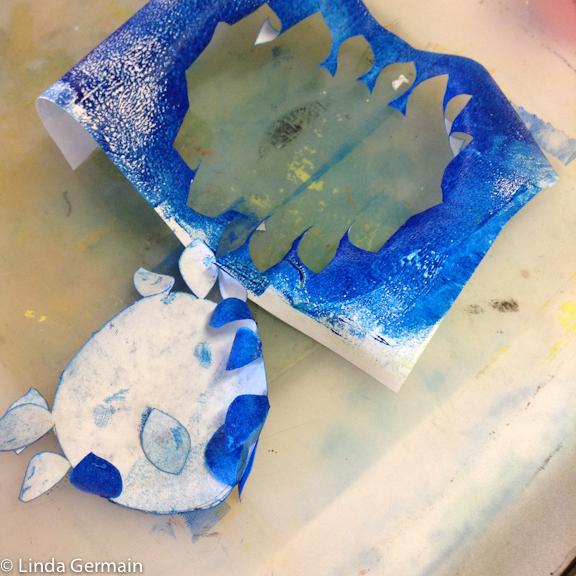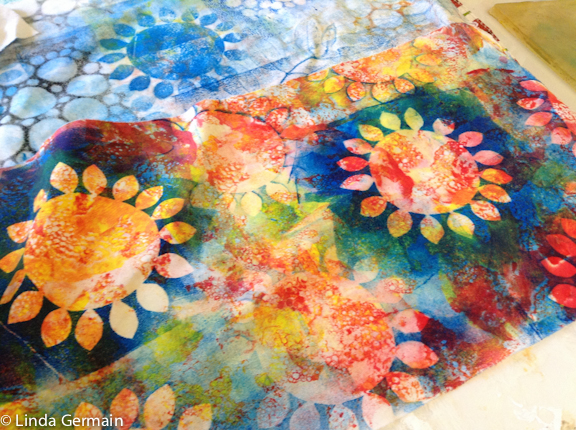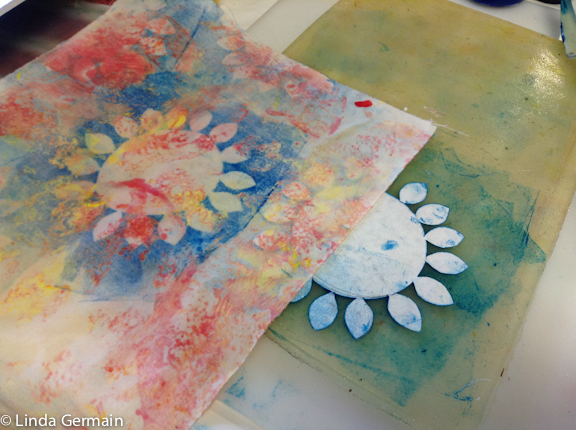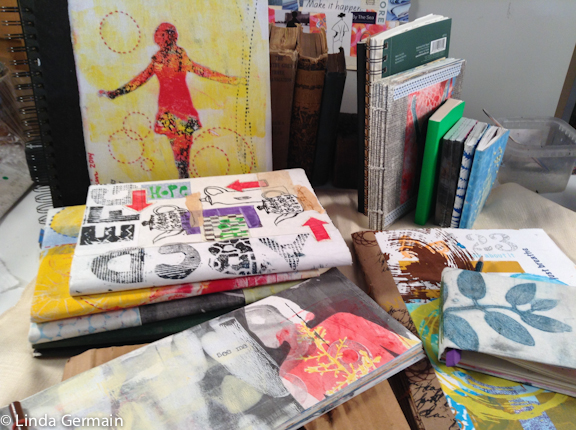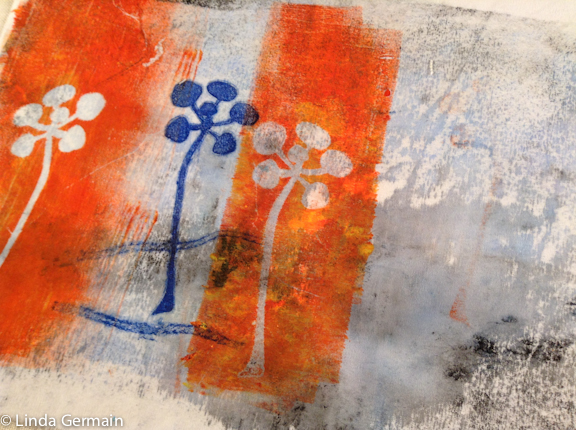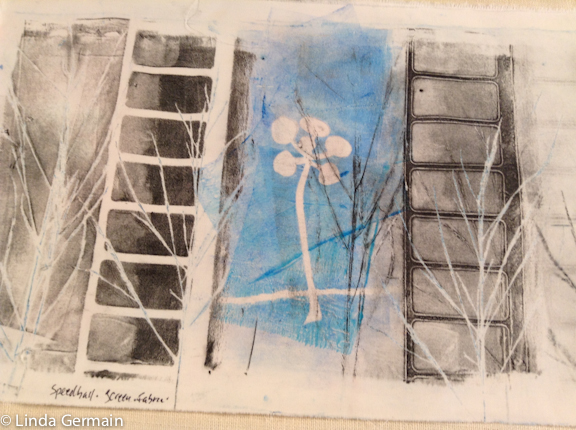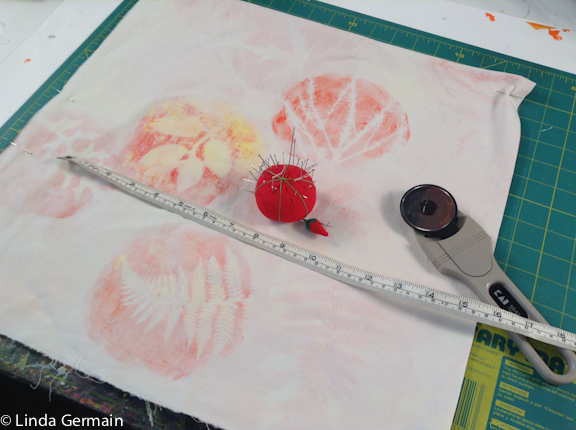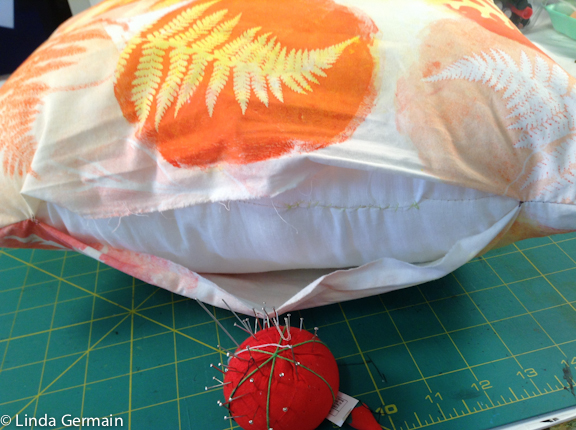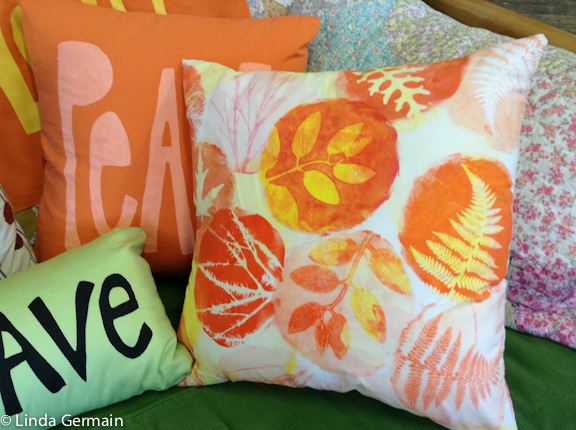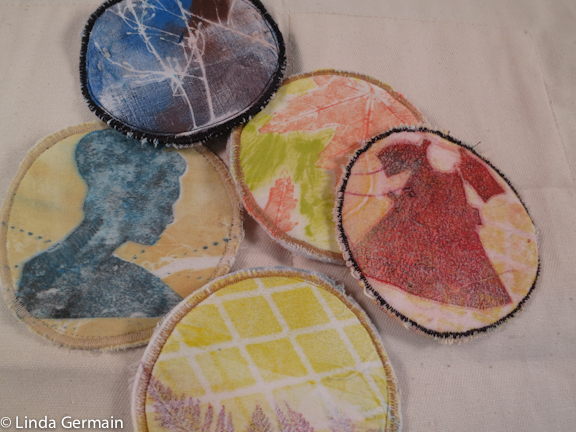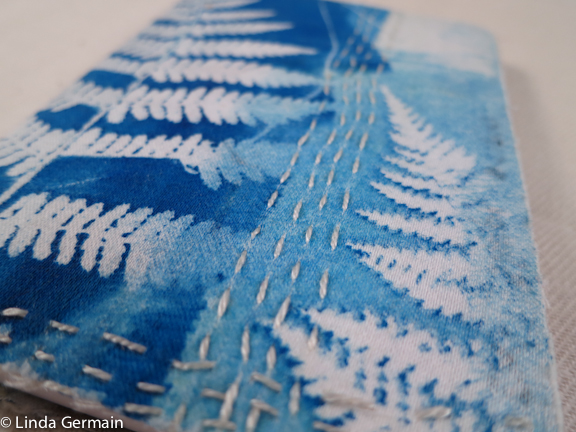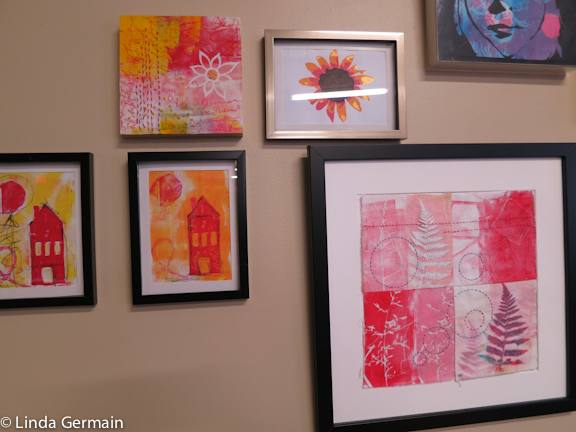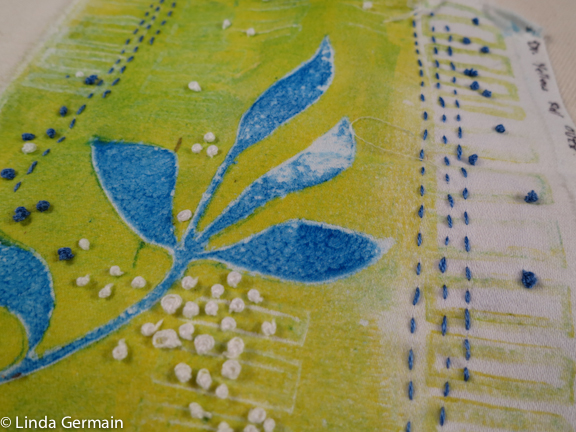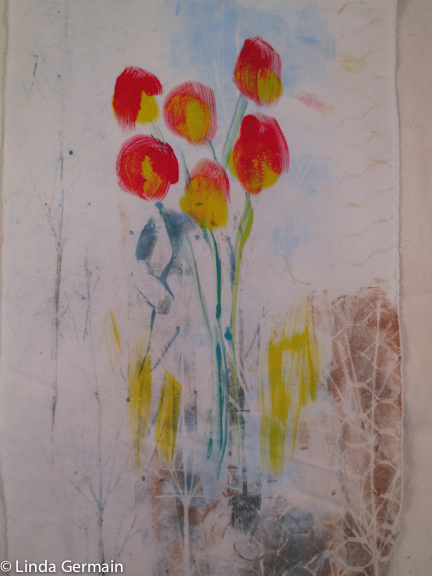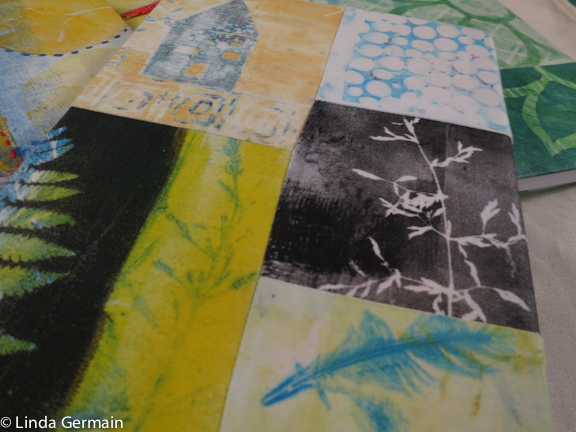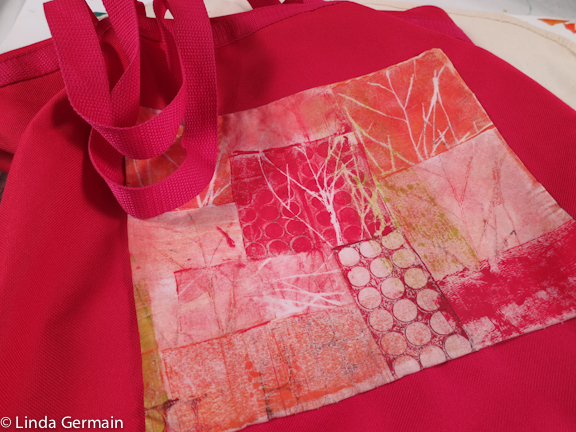Stencils, the gelatin plate and fabric for printing
I cut another stencil inspired by the Everybody Kirigami book. I cut it on a fold. I used a roll of tape to draw the half circle. Then I made one petal and used it as a template for the other petals. And I used an X-acto knife to cut it out.
You know I was impatient and wanted to print with it right away. So I did not take the time to make it strong and durable with lots of coats of mat medium. But it is easy enough to cut a new one for the next project. I used both the masking stencils and the traditional hole stencil.
I was able to add some blue layers and shapes to some fabric prints that I did last year. I intentionally print off the edge of the fabric and use different size portions of the stencil to create interest.
I love how a simple stencil can transform a piece of hand printed fabric. The unique quality about this monoprinting with the gelatin plate process is that it is very fast and spontaneous. This printmaking technique allows for quick layering of slight different marks.
If you have not played with printing with the gelatin plate then check out my FREE recipe and make the plate today!
Additionally, you will receive a weekly email about printmaking, ideas, tips and courses.
Join us today and start having fun!
Stencils, the gelatin plate and fabric for printing Read More »
